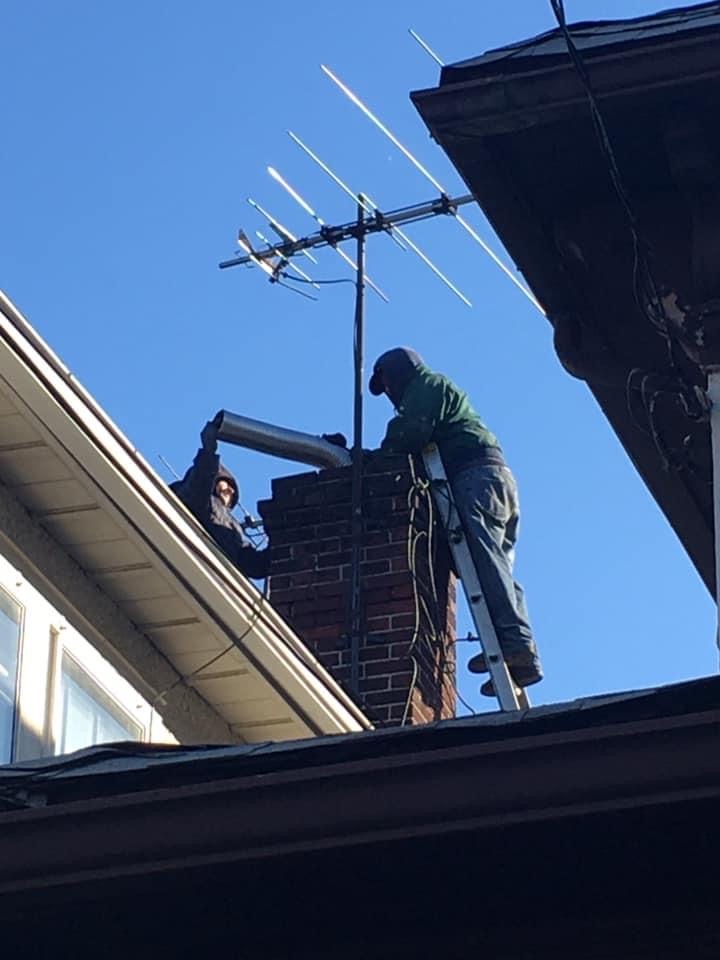Chimney cleanings and inspections

Chimney cleanings and inspections are often overlooked, forgotten or just plain shrugged off as not being necessary. Its not something that people see or think about on a daily basis so its not looked at as important. That can turn out to be very costly and dangerous for a variety of reasons. Regardless of if your burning gas, oil or wood you need your chimney to be in good working condition. This will save you money and keep your family safe as well.
Annual inspections and cleanings of your chimney is a simple way to avoid a much bigger problem. When it comes to fireplace chimneys, the main issue is creosote buildup. Creosote is the substance left behind after the wood is burned. It doesn’t take much buildup to leave a residue on your chimney linng. This residue can ignite by sparks produced by the fire burning process and can cause a chimney fire. Even if your chimney seems to be drafting properly, creosote residue is still left behind and needs to be cleaned and removed for safety. Poorly drafting fireplaces or fireplaces using improper wood will build up creosote at an even higher rate and poses an even greater risk.
People are often under the impression that their oil companies handle everything when it comes to their annual boiler tuneups. Most oil companies just do a quick test of the chimney when doing their tuneup but do not do a full chimney check up or even properly clean the oil boiler. Oil heat chimneys, like fireplaces leave behind a residue which needs to be cleaned in order to work properly and safely. The cleaner your chimney and boiler are the better the draft which means higher efficiency. That’s less oil consumption to heat your home which translates to less oil deliveries and a cheaper heating season. That’s money in your pocket
Many people think if they have gas heat they don’t need to have their chimneys cleaned or even looked at. That’s a mistake that can prove costly. Even gas burning chimneys can have buildup of debris caused by the deterioration of the chimney lining as well as possible obstructions that affect the draft of the boiler and hot water heater. Any restrictions on chimney venting can cause carbon monoxide to come back into the home instead of venting through the chimney as intended. Unlike fireplaces and oil heat where you can sometimes smell when there is a drafting issue, gas is not the same. Carbon monoxide is odorless which means that it can freely flow throughout the home without detection if there are no detectors or safety measures in place. An annual heating system check up is recommended to test the draft of the heating units and find any issues that may occur when the units are running.